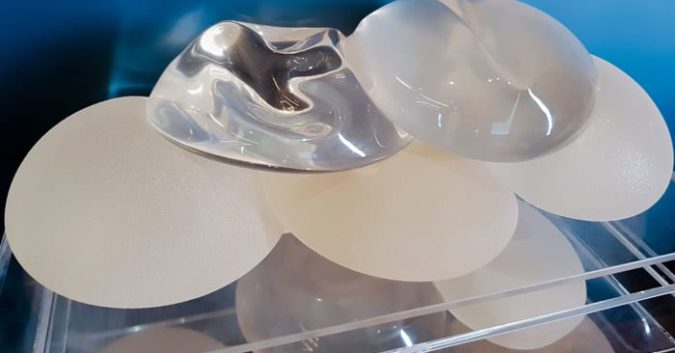On May 2, the Food and Drug Administration (FDA) announced steps the agency is taking in order to address growing concerns about cancer associated with breast implants. This action comes after a public hearing in March where the agency heard from researchers, manufacturers, and women who developed a rare cancer after getting breast implants.
Breast implant-associated anaplastic large cell lymphoma (BIA-ALCL) is a cancer of the immune system that most often forms in the scar tissue and fluid surrounding a woman’s breast implant. Although the recorded numbers of women affected are relatively low — 600 reported cases of worldwide of the 10 million women — many think cases of BIA-ALCL are underreported.
The textured surface of some breast implants is thought to play a role in the development of BIA-ALCL. In some European countries, textured implants have been banned, but according to U.S. regulators, they will remain on the market in America.
FDA Recognizes Cancer Risks of Textured Implants
Textured breast implants have more surface area than smooth implants, and the thinking was that the rougher surface would decrease the chances of capsular contracture and excessive movement of the implant, 2 common injuries women with implants suffer. The benefits of textured implants remain controversial and the risks unclear.
In a statement from Amy Abernethy, FDA Principal Deputy Commissioner, and Jeff Shuren, director of the FDA’s Center for Devices and Radiological Health, the agency described their plan to address growing concerns about BIA-ALCL and the safety of textured breast implants.
Some public health advocates had hoped for a ban of textured breast implants, but the agency is stopping short. “At this time,” they wrote, “the FDA does not believe that, on the basis of all available data and information, the device meets the banning standard set forth in the Federal Food, Drug and Cosmetic Act.”
Steps the FDA Is Taking to Ensure Breast Implant Safety
Instead of a ban, the FDA will continue to work toward 2 interrelated goals they believe will keep women safe. The first is to ensure women and their healthcare providers have accurate information about the risks of breast implants, because many women and healthcare professionals “may not be fully aware” of the risks of BIA-ALCL.
They plan to coordinate with manufacturers to make sure that labeling practices on breast implants clearly reflect the risks of BIA-ALCL and the increased risk of textured implants. The agency may require breast implants to include a boxed warning, product ingredient information, and a patient decision checklist.
The goal here is to ensure that women considering breast implants understand all of the risks and are enabled to have “thoughtful and balanced discussions” with their doctor. It will also help women with implants be able to recognize and report symptoms of BIA-ALCL and other injuries related to their implants.
Better Data on Breast Implants Is Good for Women’s Health
This gets to the second part of the FDA strategy — increasing the quantity and quality of data available to researchers. “Better evidence generation,” they wrote, “leads to more robust and scientifically-sound regulatory decisions.”
In order to increase such evidence generation, the FDA announced that they will be changing the way breast implant manufacturers file reports to make it easier for the public to access and understand the data. This is part of a larger FDA action to end the alternative summary program for all medical devices, a change they “intend to complete in the coming weeks.”
Instead of alternative summary reports, which critics said hid failures of medical devices, manufacturers will have to file individual reports to the Manufacturer and User Facility Device Experience (MAUDE). Past data, including alternative summary reports, will soon be made available on MAUDE.
Additionally, the FDA has promised to keep a closer watch on these post-approval studies and to make sure companies are adequately informed of their product’s performance.
In March, the agency sent warning letters to Mentor and Sientra for their failure to conduct adequate post-approval studies. Along with Allergen, these 3 are the only manufacturers with approval to sell textured breast implants in the United States.
The greater transparency with regards to medical device reports and post-approval studies will lead to more high-quality data and will “greatly contribute to our understanding and further assessment of BIA-ALCL, systemic symptoms and other potential long-term risks from breast implants.”
Much of the time, the valuable information is first reported by a woman who is in pain and doesn’t know why. This is why informing women and their doctors is so important, and why the FDA is planning to increase its partnership with registries that collect real-world data on the safety of breast implants, including:
- PROFILE: Patient Registry and Outcomes For Breast Implants and Anaplastic Large Cell Lymphoma (ALCL) Etiology and Epidemiology
- NBIR: National Breast Implant Registry
For too long, women were getting breast implants without knowing about the risks of BIA-ALCL. Some women opted for textured implants, and they were never told about an increased risk of cancer. If you have or had a textured breast implant, you may be at risk of developing BIA-ALCL.
To find out more, talk with your doctor or use the links below. If you have been hurt by a breast implant or another medical device that was supposed to help you, find helpful information about product liability here, or contact us to help you figure out the next step.
